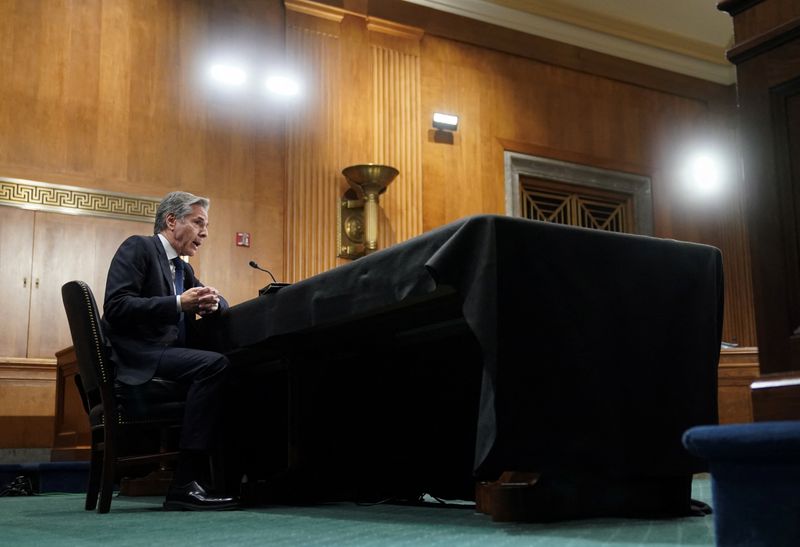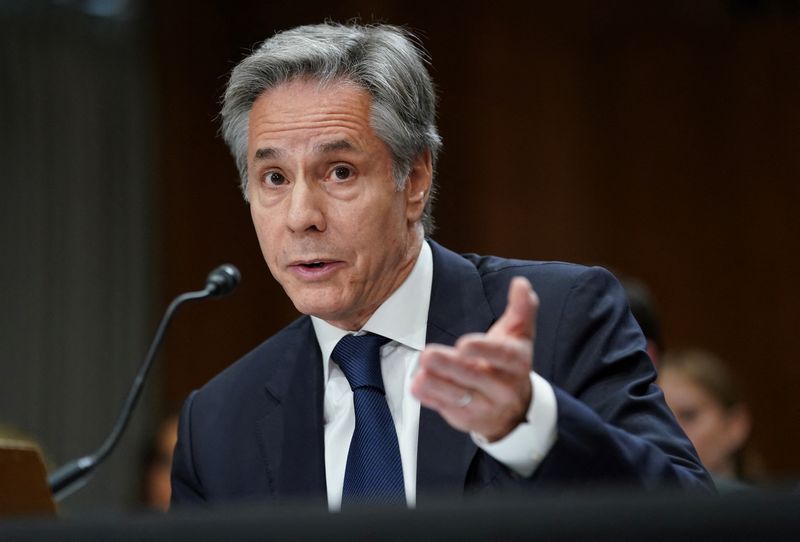By Simon Lewis, Humeyra Pamuk and Patricia Zengerle
WASHINGTON (Reuters) -The Biden administration is willing to work with Congress to potentially impose sanctions against International Criminal Court officials over the prosecutor's request for arrest warrants for Israeli leaders over the Gaza war, Secretary of State Antony Blinken said on Tuesday.
At a Senate appropriations subcommittee hearing, Republican Senator Lindsey Graham told Blinken he wanted to see renewed U.S. sanctions on the court in response to the move announced by ICC prosecutor Karim Khan on Monday.
"I want to take actions, not just words," Graham said to Blinken. "Will you support bipartisan effort to sanction the ICC, not only for the outrage against Israel but to protect in the future our own interest?"
"I welcome working with you on that," Blinken responded.
Khan said in his announcement that he had reasonable grounds to believe that Israeli Prime Minister Benjamin Netanyahu, Israel's defense chief and three Hamas leaders "bear criminal responsibility" for alleged war crimes and crimes against humanity.
Both President Joe Biden, a Democrat, and his political opponents have sharply criticized Khan's announcement, arguing the court does not have jurisdiction over the Gaza conflict and raising concerns over process.
The United States is not a member of the court, but has supported past prosecutions, including the ICC's decision last year to issue an arrest warrant for Russian President Vladimir Putin over the war in Ukraine.
At an earlier hearing on Tuesday, Blinken said he would work with Congress on an appropriate response, calling the ICC's move "profoundly wrong-headed." It would complicate the prospects of reaching a hostage deal and a ceasefire in Israel's conflict with the Palestinian militant group Hamas, Blinken said.
Republican members of Congress have previously threatened legislation to impose sanctions on the ICC, but a measure cannot become law without support from President Joe Biden and his fellow Democrats, who control the Senate.
In 2020, then-President Donald Trump's administration accused the ICC of infringing on U.S. national sovereignty when it authorized an investigation into war crimes committed in Afghanistan. The U.S. targeted court staff, including then-prosecutor Fatou Bensouda, with asset freezes and travel bans.

Biden lifted those sanctions in April 2021 shortly after assuming office.
"These decisions reflect our assessment that the measures adopted were inappropriate and ineffective," Blinken said in a statement at the time.
